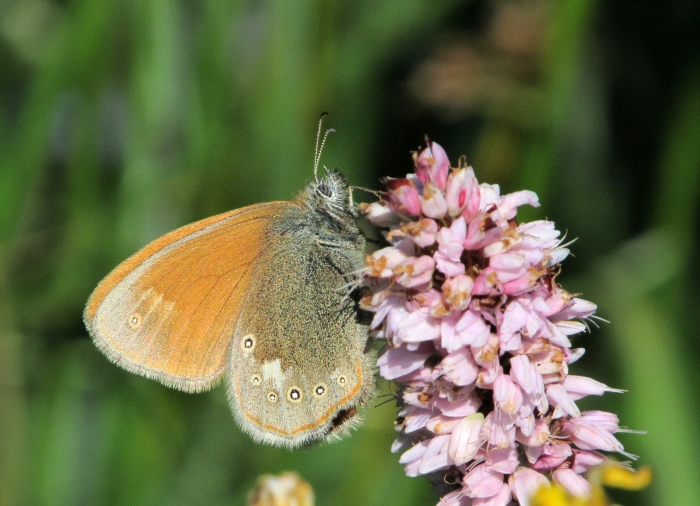
Switzerland, July 2013

Switzerland, July 2013

Switzerland, July 2016

Switzerland, July 2016

Switzerland, July 2016
Coenonympha glycerion /
iphioides
Refresh page if pictures don't load fully:






French Jura, June 2008

French Jura, June 2008

French Jura, June 2008

French Jura, June 2008

French Jura, June 2008

Distribution
The status of the Iberian taxon Coenonympha iphioides
is controversial, with some authors treating it as a subspecies of glycerion
and others as a species in its own right. There is a region of overlap
and contact in the Eastern Pyrenees. In general, the chestnut heath is
widespread in Europe but local - I have only encountered it at two
sites, both in the Jura, one in France and one in Switzerland. It is a
butterfly of damp or dry grassland, at damp sites often flying in
company with large heaths.
There is considerable variation, both geographical and within a single population, most obviously in the prominence of the hindwing spotting. In some individuals, like the third one illustrated above, this is vestigial (or even absent), while in others, like the first, it is bold and conspicuous. The spots are particularly strong and regular in iphioides. The best identifying feature is the white 'badge' in the middle of the underside hindwing, which may or may not have a smaller white patch beneath it. The badge is present, but small and largely obscured by the postdiscal spots, in iphioides.
Several different grasses are used as foodplants, including
bromes,
quaking grasses and others. The caterpillars hibernate and the adults
fly in a single generation from June to August.